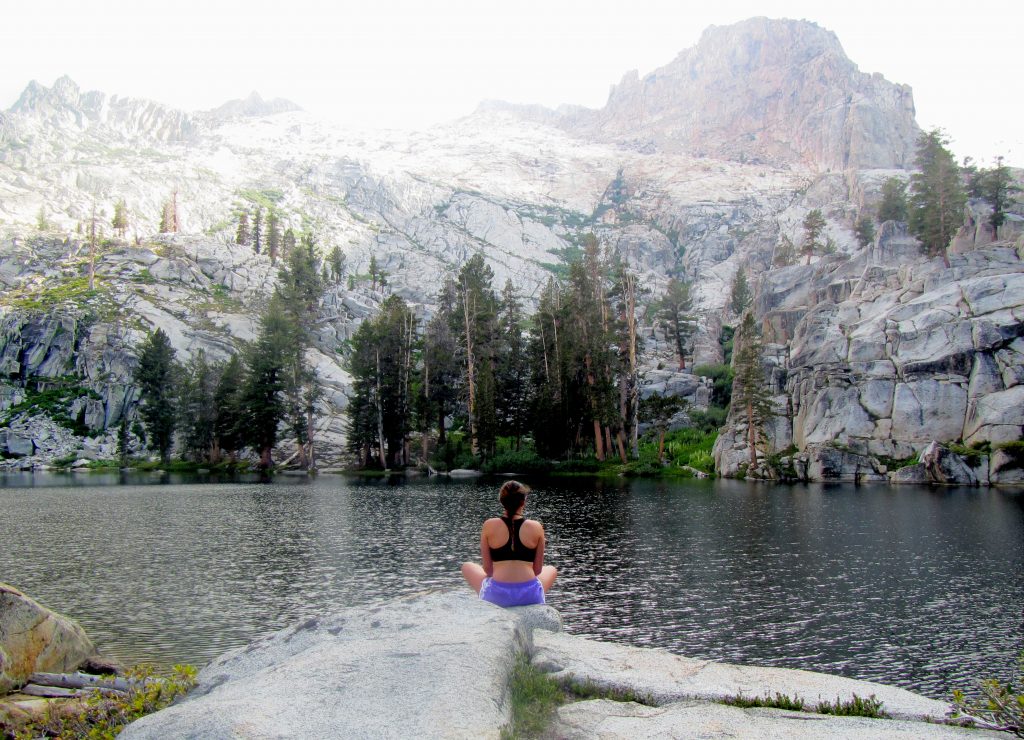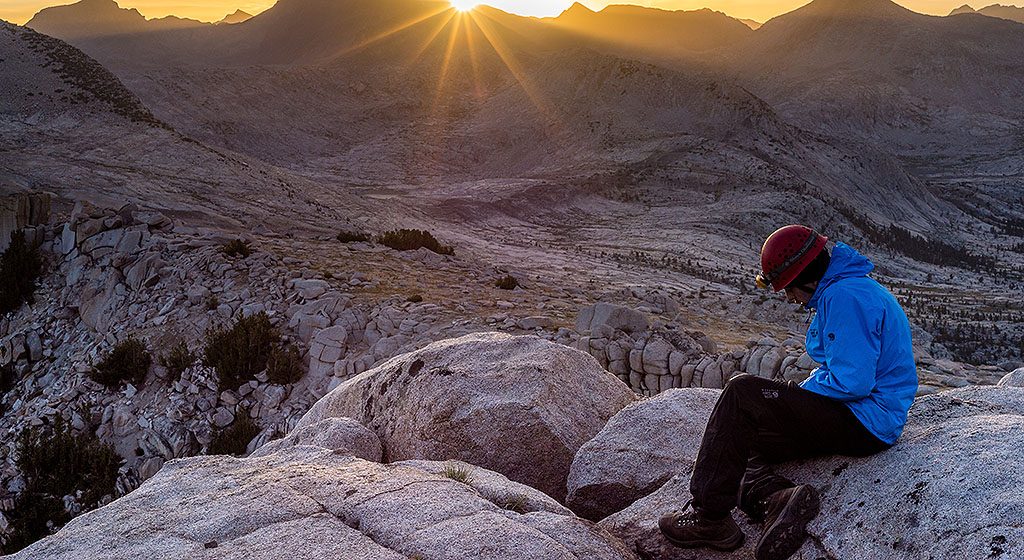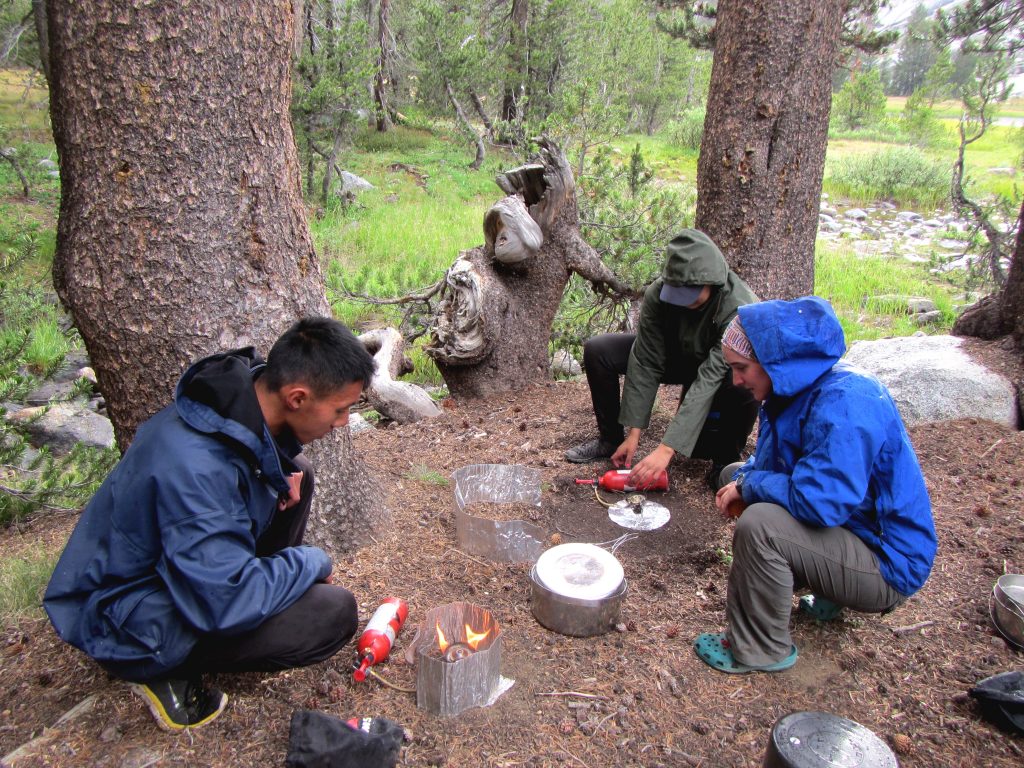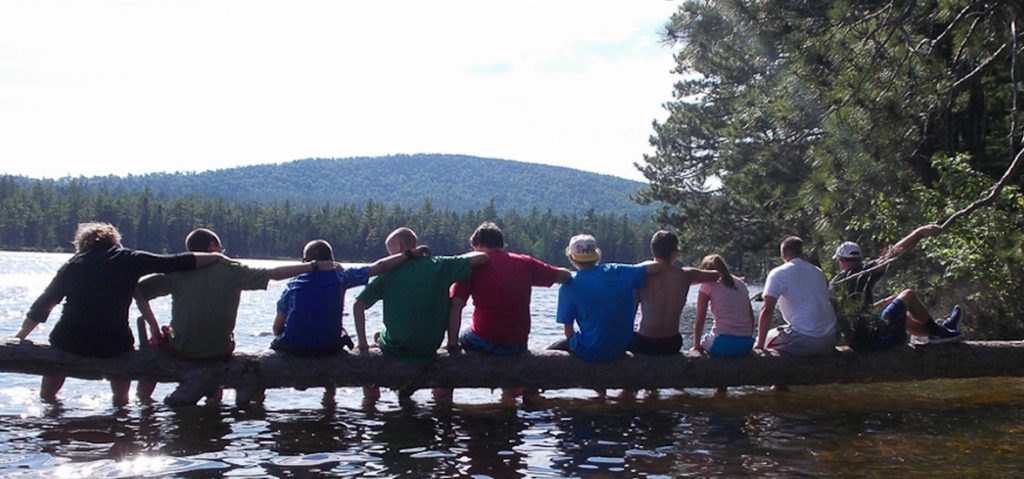Sharing mindfulness practices with my students has been a powerful experience. I often keep it really simple—something they can bring back home. We find a peaceful location, grab our camping pads and sit with our eyes closed. We start by paying attention to our breath and then proceed to scan for sensations in our body from head to toe. Though you might think teenagers would have no patience for this type of practice, you’d be surprised. When they’re given the proper setting and opportunity for rest and reflection, teenagers crave it. The most common question I hear after such practice is some version of, “whoa, can we do that again tomorrow?”

Though you may think teenagers would have no patience for reflection, once they make time for it, they crave it.
Find Yourself
When I first heard about mindfulness practices, I didn’t connect them to our work at Outward Bound. I thought mindfulness and reflection were only about focusing on yourself, just sitting there waiting for some great insight while you ignored the rest of the world’s problems. As in life, one of the biggest parts of a wilderness expedition is figuring out why you’re there. As Nietzsche famously wrote, “He who has a why to live for can bear almost any how.” And the best way to find a why is to have the time and space for reflection.

Outward Bound gives students a much needed break from social media and can reflect on who they are and who they want to become. Photo by Rikki Dunn.
Finding the why is a key part of both an expedition and mindfulness practice. Beginning to answer the big questions of life is key to a healthy adolescence. Why am I here on this planet? What is my calling? How can I serve others in this quest? In the inherent break from technology, time spent in the wilderness and through facilitated activities like Solo, Outward Bound gives students a much needed break. They get a break from endless social media feeds and a tremendous opportunity to reflect on who they are and who they want to become.
Not Just About Yourself
Buddha, whose teachings are the root of many mindfulness practices, often referred to the idea of ‘Dana,’ which means generosity or giving freely. He argued that Dana benefits both the giver and receiver, and it can deepen our connection to ourselves and one another. Looking at beliefs across the world, we see that love, kindness and compassion are nearly always central tenets.
This idea is central to what we do. Kurt Hahn, the founder of Outward Bound, lifted compassion “above all.” However, before you can properly care for others, you have to learn to care for yourself. Students have a genuine opportunity to learn what that means. It starts with simple tasks like drinking enough water, wearing the proper clothes and applying sunscreen. Only once a student has mastered these basics can they begin to reach out to the group to serve others. This service is woven through the fabric of everyday life. Students learn to serve each other by preparing meals, cleaning up after one another and rotating through other service roles that are key to achieving the group’s collective goals.

Students learn to serve each other on a course by preparing meals, cleaning up after one another and rotating through other service roles that are key to achieving the group’s collective goals.
Students discover the meaning and value of serving one another and their communities, and it’s also a perfect metaphor for their lives back home. Only once they have gained a solid understanding of self can they effectively share their unique gifts, talents and skills to make their community a better place.
The Balance Between Distraction and Reflection
As you might suspect, the experience of a guided meditation through an app is much different than meditating with others in nature, like at a high alpine lake or in the bottom of a red rock canyon. The sounds of rushing water, dancing gusts of wind and trilling of the birds are naturally soothing, which gives students a much needed refuge from the deluge of their everyday lives.
I finish a course much the same way that I finish mindfulness practice with students. I tell them that the whole point of this is to show them what they’re capable of—that they have everything they need inside to care for themselves and others and to continue to reflect on their path in life. Of course, I’m also realistic with them about the challenges they’ll face at home—old habits and thought patterns, computers and phones, and the constant barrage from billboards to buses that will assail them in the urban landscape. But none of this is new and people have conquered some versions of these challenges many times before.
No matter what age we live in, humans have always tried to walk the balance between distraction and reflection. Reflection and compassion are key elements of a life well-lived. And we can help young people start their journey on that path.

Reflection and compassion are key elements of a life well-lived.
About the Author
Dan Susman is an Instructor at the Colorado Outward Bound School who loves running long distances, climbing rocks, and playing with other people’s dogs. While not instructing, Dan teaches science and runs the outdoor program at the Midland School outside of Santa Barbara, CA. His favorite thing to eat on an Outward Bound course is homemade pizza with wild foraged mushrooms. Dan received his bachelor’s degree from Dartmouth College and has a Master of Education from Harvard University.
OTHER POSTS YOU MAY LIKE
Read More
Read More
Read More




